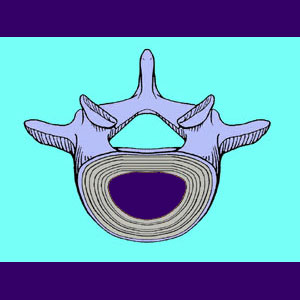
Disc surgery is a drastic treatment option for pain stemming from herniated or degenerated disc conditions. Surgery is never an easy choice and is always a hazardous and scary experience for any patient to endure. Understanding the facts about your disc conditions will help you to make an informed choice when it comes time to decide if surgery is the correct modality for your treatment resistant back pain.
This article covers the most popular procedural options and provides an objective view of the surgical techniques that are used to treat intervertebral disc pain.
Types of Disc Surgery
There are numerous procedures used to correct spinal disc abnormalities. Doctors usually specialize in a specific procedure or type of procedure, so do not be surprised if you are recommended to undergo a particular operation. After all, the doctor has their economic goals in mind also and does not want to lose you as a patient. You will have to look out for your own best interests here in determining if the prescribed technique is best for your individual needs. It is wise to consult with several surgeons to get objective second opinions on whether surgery is appropriate for your pain and if so, what type of procedure will have the best chance to relieve your symptoms.
As a general rule, minimally invasive back surgery is always preferred, since patients heal much faster and have less scar tissue and chance for complications. Full open spinal surgeries are old technology and should only be used when there is absolutely no other method of performing a mandatory procedure.
Conditions Warranting Surgery
Surgery shows mediocre to poor results for the permanent correction of herniated disc pain. Surgery demonstrates even worse results for correcting pain blamed on degenerative disc disease. Both of these conditions are very common in the general population, yet pain is only experienced by a small percentage of people with these disc abnormalities.
Many cases of suspected disc-related pain are actually due to some idiopathic source. Being that no other verifiable condition can be singled out, the abnormal disc acts as a scapegoat on which all the symptoms are blamed. This is a travesty of medicine, since the symptoms often do not even correspond to the location of the diagnosed disc condition.
Not too long ago, some crucial revisions to accepted and recommended diagnostic protocols were handed down by several noted medical associations. These revisions cautioned doctors not to assume structural abnormalities caused back or neck pain. These same revisions highlighted disc pathologies as being the most actively treated spinal issues, despite there being no evidence that most disc conditions had any correlation at all to painful symptoms. This would come as a huge shock to any patient who had been told a completely different story by their doctor.
There are numerous procedures used to correct spinal disc abnormalities. Doctors usually specialize in a specific procedure or type of procedure, so do not be surprised if you are recommended to undergo a particular operation. After all, the doctor has their economic goals in mind also and does not want to lose you as a patient. You will have to look out for your own best interests here in determining if the prescribed technique is best for your individual needs. It is wise to consult with several surgeons to get objective second opinions on whether surgery is appropriate for your pain and if so, what type of procedure will have the best chance to relieve your symptoms.
As a general rule, minimally invasive back surgery is always preferred, since patients heal much faster and have less scar tissue and chance for complications. Full open spinal surgeries are old technology and should only be used when there is absolutely no other method of performing a mandatory procedure.
Disc Surgery Cautions
Operations are serious health risks and can damage healthy tissue permanently. I have met literally thousands of patients who have been irreparably disabled by their unsuccessful spinal surgeries. Worst of all, most of these patients still have the back ache which was supposed to be eliminated by their surgeries! This is the reason why surgery should always be a last resort option as a back pain treatment modality.
There are so many conservative treatments which show comparable or better treatment results to surgery for disc pain relief. You owe it to yourself to exhaust all these non-invasive options before even considering a back operation.
If you have decided that surgery is a proper treatment for your pain, at least research the different procedures that are available and find one that has the best chance of working well for your individual condition.





